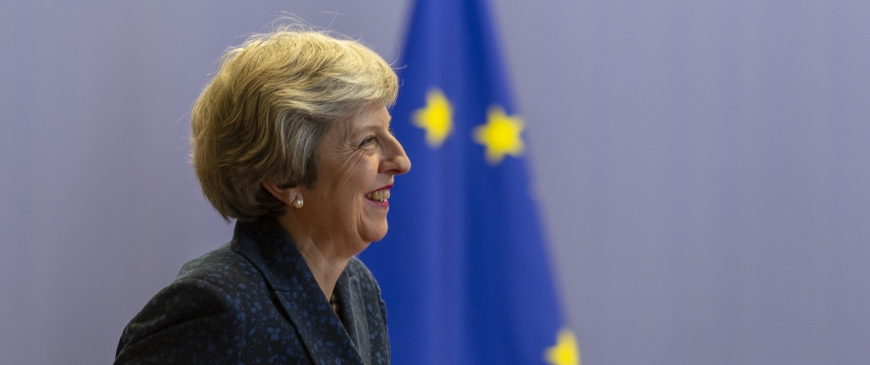
Why May needs Brexit to go down to the wire
Michel Barnier has repeatedly warned the British that the clock is ticking in the Brexit negotiations, and there is wide consensus that Britain needs to get its skates on.
It is no surprise that there is growing frustration. But in all of this there is a crucial point that is underappreciated: May needs Brexit to go to the wire, or at least close. She needs the threat of attributable, actual peril. Only then will she win domestic support for the withdrawal agreement.
It’s easy to forget that the EU and UK are not currently negotiating the depth and scope of their future relationship. They are negotiating the terms of the UK’s withdrawal—the “divorce.” There will be a political declaration, setting out joint aspirations for the future relationship, but neither party will be legally bound to deliver it.
The EU will not back down on its demands for the withdrawal agreement. It will insist that geographical indicators for food products must be protected (trust me on this one), and consensus on governance provisions will be found. The EU is equally unlikely to budge substantively on the Irish backstop, though here there might be some scope for additional riders. I have previously proposed a “backstop to the backstop,” which would see the Northern Ireland-specific protocol supplemented by text allowing for the customs union to be temporarily extended to the whole UK, conditional on post-withdrawal agreement.
Such an idea, or at least similar, is reportedly being considered by both the EU and UK. But if adopted, it will still draw criticism from across the political spectrum.
It is still difficult to see how the withdrawal agreement clears parliament. The Democratic Unionist Party (DUP) won’t like it, and neither will the pro-Brexit European Research Group, Labour, or Remain-leaning Conservatives. Yet, UK capitulation hiding beneath aspirations for the future composed of ambiguity and fudge is probably the only way the UK can leave in an orderly manner, thereby ensuring a further two years’ worth of breathing space to negotiate the terms of the post-Brexit relationship.
May needs Brexit to go right up against the deadline. A parliamentary vote in December, for example, would be too soon. MPs will not be sufficiently terrified. The consequences of saying “no” to Europe will be too remote.
As the heavily signalled March deadline moves closer, this will change. With no deal on the table, markets will have adjusted further, and more business contingency plans will have been triggered. The choice will be portrayed as “this deal or no-deal.” The considerable perils of no deal will be staring parliament in the face, and it will be on them to decide whether to fall into its embrace, or not.
While the hardline Brexiteer contingent might not like the deal on the table, it is unclear that this group—which seems far more comfortable shouting from the sidelines than being held accountable—will really want to be responsible for the chaos of no-deal.
While the EU is publically opposed to this process dragging on into the new year, it would not come as a surprise. And the EU certainly has form when it comes last minute deals. The European Parliament is already looking to schedule its vote pretty late in the day, for the week of 11th March, 2019.
Of course such an approach is risky, meaning increased economic and market uncertainty and accompanying negative headlines. Will the DUP stick with May, or risk collapsing the government and opening the door to a Sinn Féin-sympathising Jeremy Corbyn as prime minister? How many Labour MPs will vote with the government? Would the EU allow an extension of Article 50 so as to allow time for the ratification of an agreement struck at the 11th hour? It is difficult to say with any certainty (although I would bet yes on the latter, for what it is worth).
But regardless, it is near impossible to see how an exit deal can be agreed without a sense of total peril hanging over Westminster. For too long Brexit has been a game for many, devoid of real world consequence. If May is to secure the withdrawal agreement—and the extra time it affords—that will need to change.
Sam Lowe is a senior research fellow at the Centre for European Reform.
